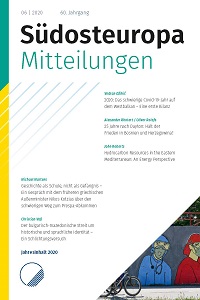25 Jahre nach Dayton: Hält der Frieden in Bosnien und Herzegowina?
25 Years after Dayton – Will Peace Hold in Bosnia and Herzegovina?
Author(s): Alexander Rhotert, Oliver Joachim RolofsSubject(s): Governance, Political history, Transformation Period (1990 - 2010), Post-Communist Transformation
Published by: Südosteuropa Gesellschaft e.V.
Keywords: Dayton agreement; Bosnia and Herzegovina; Bonn Powers; OHR;
Summary/Abstract: The 1995 Dayton Agreement was intended to end the Bosnian War but not to provide a lasting political framework. Politicians from the three ethnic groups moved the former frontlines into the country’s parliaments and institutions thus preventing Bosnia from progressing for more than two decades. After the recentattacks and threats by the leader of the Bosnian Serbs, Milorad Dodik, to secede from the Bosnian central state, the international community can no longer remain inactive. In order to secure the integrity and stability of Bosnia, the new US administration and the EU must again work together in mutual trust. For this, the mandate of the High Representative (OHR) and the use of the “Bonn Powers” must regain the necessary backing from the International Peace Implementation Council (PIC). Equally, the EU must apply its political instruments and encourage Croatia and Serbia to end the intransigence of local politicians and secure Bosnia’s ability to function.
Journal: Südosteuropa Mitteilungen
- Issue Year: 60/2020
- Issue No: 06
- Page Range: 25-38
- Page Count: 13
- Language: German
- Content File-PDF

